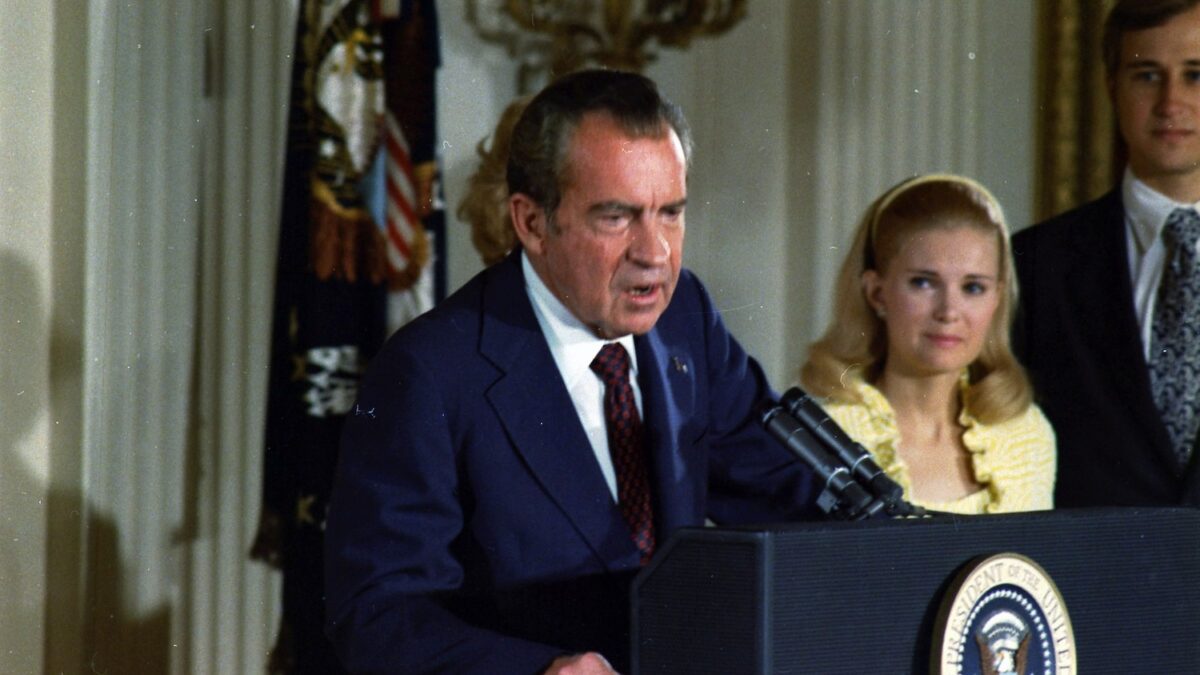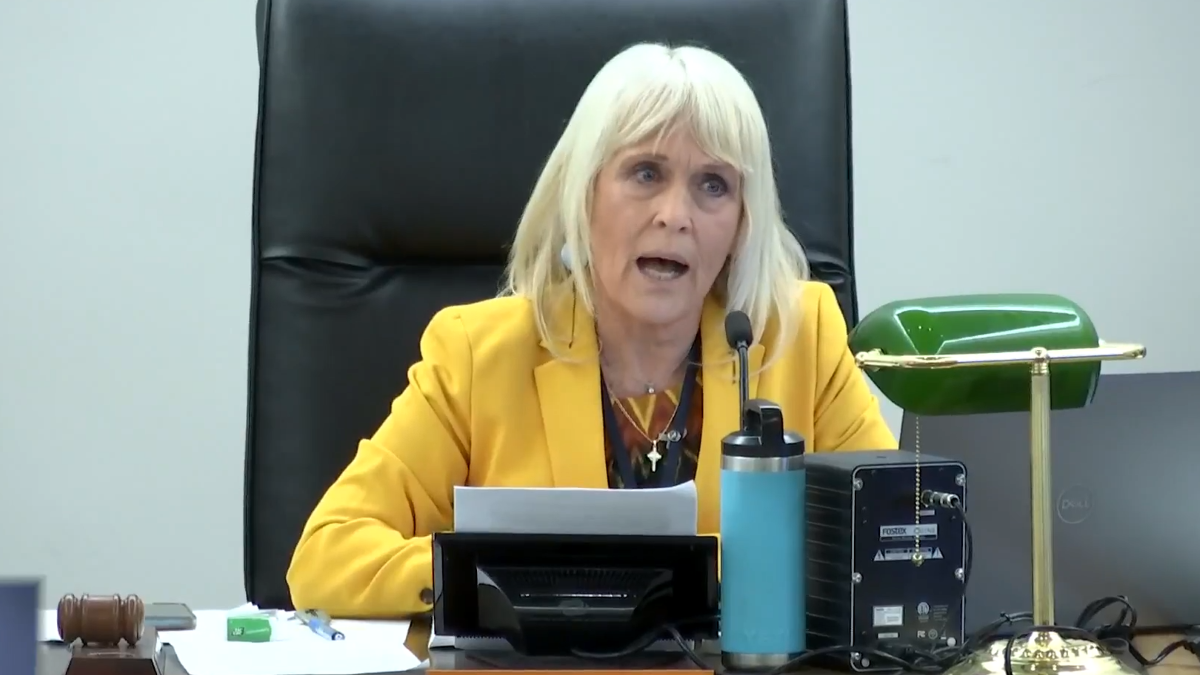
Alabama Gov. Kay Ivey recently said she supports Senate candidate Roy Moore because “I believe in the Republican Party, what we stand for, and most important, we need to have a Republican in the United States Senate to vote on things like Supreme Court justices, other appointments the Senate has to confirm, and make major decisions.”
She said this despite admitting that the accusations of sexual abuse against Moore from 40 years ago have some credibility. Social conservatives’ response to Ivey has been harsh, as critics argue that putting Moore in the Senate for the greater political or judicial good is bad for the GOP and the country.
This complaint is nothing new, as it was fervently repeated after sexual misconduct accusations against Donald Trump surfaced just before the election. Many chose to vote for Trump because they considered his governing characteristics, which were more conservative and morally acceptable than Hillary Clinton’s, as more important than his personal moral failings—true or not.
Character Is Important, But Not the Only Consideration
This attitude has horrified certain social conservatives, and their concern is not completely unfounded. After all, a man’s morality matters in any form of leadership, a point Richard Nixon, ironically, made in an ad for Barry Goldwater’s presidential campaign: “With all the power that a president has, the most important thing to bear in mind is this: You must not give power to a man unless, above everything else, he has character. Character is the most important qualification the president of the United States can have.” Calvin Coolidge simply said, “Character is the only secure foundation of the state.”
Those of us who voted for Trump would agree. Character does matter, and when two people are running for office, you need to take into account the character of both candidates as well as their values regarding governance and policy, for these reflect character as well. When making a decision about a candidate, the fullness of the person needs to be taken into account, not just one aspect, failing, or virtue, but the whole of the man or woman—his or her complete character.
Unfortunately, many social conservatives, and Christians in particular, treat secular leaders as if they’re spiritual leaders, as if any stain on their character, fault from their distant past, or even theological apostasy disqualifies them from political leadership. They seem to fear that the personal sinfulness of a man will bring about the ruin of an entire party or nation. How many times have we heard that the “vulgar” Trump will singlehandedly destroy the GOP, as if he’s a divine prophet rebelling against God’s holy decrees?
By erecting this standard, these critics come dangerously close to confusing the secular and the sacred, the city of man and the city of God. I would like to address this point in particular, not whether someone should vote for Moore. That is a matter of personal conscience and evaluation of the information that has been presented at this late hour just prior to an election.
Political Leaders Are Not Religious Leaders
Most, if not all, of the commentary in the Old and New Testaments on purity in leadership refers to Israel and the church, i.e., the city of God. Christians are God’s covenant people and, as covenant holders, they are obligated not to be covenant-breakers. Covenantal leaders are obligated to be righteous so they don’t lead God’s flock astray. Their morality is of primary significance, and the lack of it will bring devastation to the entire community.
Political leaders, however, are not spiritual leaders with the same responsibilities, burdens, and covenantal obligations of leaders within Scripture. This doesn’t mean we can willy-nilly vote for immoral men, because there are consequences to these kinds of choices in everyday secular life. But the prophetic gloom and doom that often comes from Christians who treat politicians as if they’re God’s covenantal leaders is completely inappropriate.
At its extreme, this kind of thinking leads to Christians concluding that they can only do business with other Christians, only have Christian doctors, only watch Christian films and listen to Christian music, only have Christian instructors and teachers, and only associate with other Christians, including not spending time with their pagan relatives. They imagine themselves as the Israelites of old, who were to “separate themselves from the ungodly” or receive God’s severe judgment as a nation.
Such Christians fail to see God’s work in the city of man and how it is different from the city of God. God uses, in this secular sphere, all kinds of “immoral” men and women to bring about his purposes for his church. He is actually rather utilitarian and pragmatic regarding the secular world.
God Uses Evil Men to Carry Out His Purposes
Just go back to the Old Testament and see how he used secular leaders. God employed foreign kings to bring about his purposes of rebuilding the holy site of Jerusalem. For example, King Cyrus of Persia helped the Jews with royal decrees and financing to construct the temple, and later foreign armies defended them.
The stories of Esther, Daniel, and Joseph are all full of God’s power being exercised through political leaders, revealing the difference between the secular and the sacred. Esther even allowed a man who was falsely accused of rape to meet his death because that was best for the Jewish people. The man had never touched her, but she allowed him to be falsely accused of sexual abuse because it was politically expedient—and it saved her people from death.
The Scriptures reveal how God used all sorts of things to fulfill his plans, including directing a dumb “ass” to rebuke his servant Balaam to open his eyes to God’s truth. God forbade his people from forming unholy alliances and intermarrying with foreigners, because this was true spiritual corruption, but he used pagan authorities, armies, and even religious people from foreign lands to execute his will. In Joshua, God’s people worked with a prostitute, and lies were even justified.
Today, God uses the “ungodly” as doctors, lawyers, teachers, and politicians. To vote for, associate with, or even advocate for a person working in the secular arena who will bring about the “greater good” despite being personally immoral, pagan, or the member of some “unapproved” Christian sect (as the Catholics once were in America) is justified. To refuse to do so out of fear of God’s judgment on our nation is fusing the city of man and the city of God in a way that God didn’t even do.
It also ignores that God’s purposes are manifest through fallen men, whether they’re in the church or in the world. Think of all the secular leaders we’ve had in America and consider their fallenness. Read the histrionics of Christians in the days of Alexander Hamilton and Thomas Jefferson over the “evil” men who were infecting our “holy nation.” Have we declined because of these fallen, deeply flawed leaders? Did we suffer as a nation for putting a Catholic in the presidency with John F. Kennedy? Some purist Christians would say “Yes!” Are they right? Did we suffer as a nation because, theologically (and morally) speaking, JFK was “unfit” for the presidency? I’d say no.
Every Single Political Choice Is about Tradeoffs
If we fall into decline as a culture, it’s not simply because of the personal moral failings of the men at the helm. It’s because of their lack of wisdom in leading a country in freedom. If we fail as a nation, it will be because of a combination of things, from the personal moral and practical failings of citizens themselves to the political, philosophical, and economic failings of those making policy.
I did not choose to vote for Trump in the primaries, because his political views were not best for our nation as a free republic. His moral failings in his private life had no bearing. I am too wise to the world to assume that any man who gets to this level is clean and pure. I did vote for him in the general because his political views were best for our nation compared to Hillary’s. I do not regret this decision. When faced with the choice of who was better for our nation, not simply who was the morally better person as reported in the news, my choice was clear.
Am I concerned when I hear people saying morality doesn’t matter at all, as if we could put a complete miscreant in office and not care? Absolutely. I agree with Coolidge. Character matters! We are still moral people, human beings made in God’s image, and we should want people in power and even our associations who are good, moral, and upstanding. We will all be better for it.
This is logical and morally consistent, and I recognize the slippery slope that can come of what I’m writing here—“Why not put the devil himself on the throne if he offers liberty?” some might ask. I, of course, am not saying that, and I’m not talking about putting evil men in positions of power. Again, character, on the whole, matters.
However, the issue of “moral aptitude” is not so black and white. People are multifaceted and complex. I’m not a fan of condemning a person for one failing or even a couple. There is more to us than the singleness of a part. I’m also not going to fall into the trap of treating individual politicians or secular groups as if they’re manifestations of the city of God on earth.
Context Is Very Important for Choices Like These
Our nation is not a moral collective bound to the promises and warnings of God. Those belong to the church. God often speaks in Scripture of a minor corruption infecting the whole, which is why he would punish whole families for the sin of a single man (consider the death of Achan), but this kind of collective judgment does not apply to the secular world today.
Too many Christians who worry about God’s judgment on us for the “immoral” leader we have chosen to institute principles of freedom and moral policies stumble on just this point, because they fail to recognize that the city of man is not God’s collective on Earth. The city of God is. They are not one and the same.
This doesn’t mean the practical and political are not unassociated with the moral. Everything is “moral” in a sense, but we need to take a holistic (not a holy) look at the person we’re choosing as a secular leader. We also need to look at the moral context of the nation as a whole and the moral issues affecting society and not just an individual.
An individual’s immorality might or might not influence his political decisions; it depends on the morals we’re talking about. Will a congressman’s gluttony affect his economic policy? I don’t think so. Can the thief be trusted with top secrets and a nation’s wealth? No, not at all.
Will a serial liar deceive those who put him in office? Most likely. Will the porn-watching senator be influenced by his immorality to make bad foreign policy decisions? I don’t think so. Will a man’s sexual immorality influence his vote on abortion? Probably not. Call him a hypocrite, but I’d rather have a hypocrite who will stop the murder of millions of babies than a virginal man who leads countless to the slaughter.
That Doesn’t Mean Morality Doesn’t Matter
These immoralities don’t go without consequence, of course. They will degrade the man as an individual. This can affect him personally over the long run. It could, through consequences, impact his public decision-making or influence, ripping from him his moral authority.
So, yes, there are effects of our personal moral choices in our public lives. But these are long and winding paths and more nuanced than we often make them out to be. It is just too simplistic to say, “An immoral man will lead to our national ruin.” If that’s the case, we would have been ruined long ago.
A man’s character is certainly a factor in the quality of his governance, but when the sins are personal and not public in nature, his governance can be directed by other virtues that still shine brightly despite other faults. A moral man can certainly be trusted to make moral decisions (though not always), but it does not follow that a sinner can never make a moral decision or be an effective leader. King David was an adulterer. Samson was a womanizer. Jonah was a coward. Peter denied Christ. All served God well.
Outside the realm of criminality and abuses of power that degrade the office and put the public at risk, a sinner can still serve and do great things. This is because God is ultimately in control, bringing about his purposes by his own righteous authority, and not the authority of fallen men.









